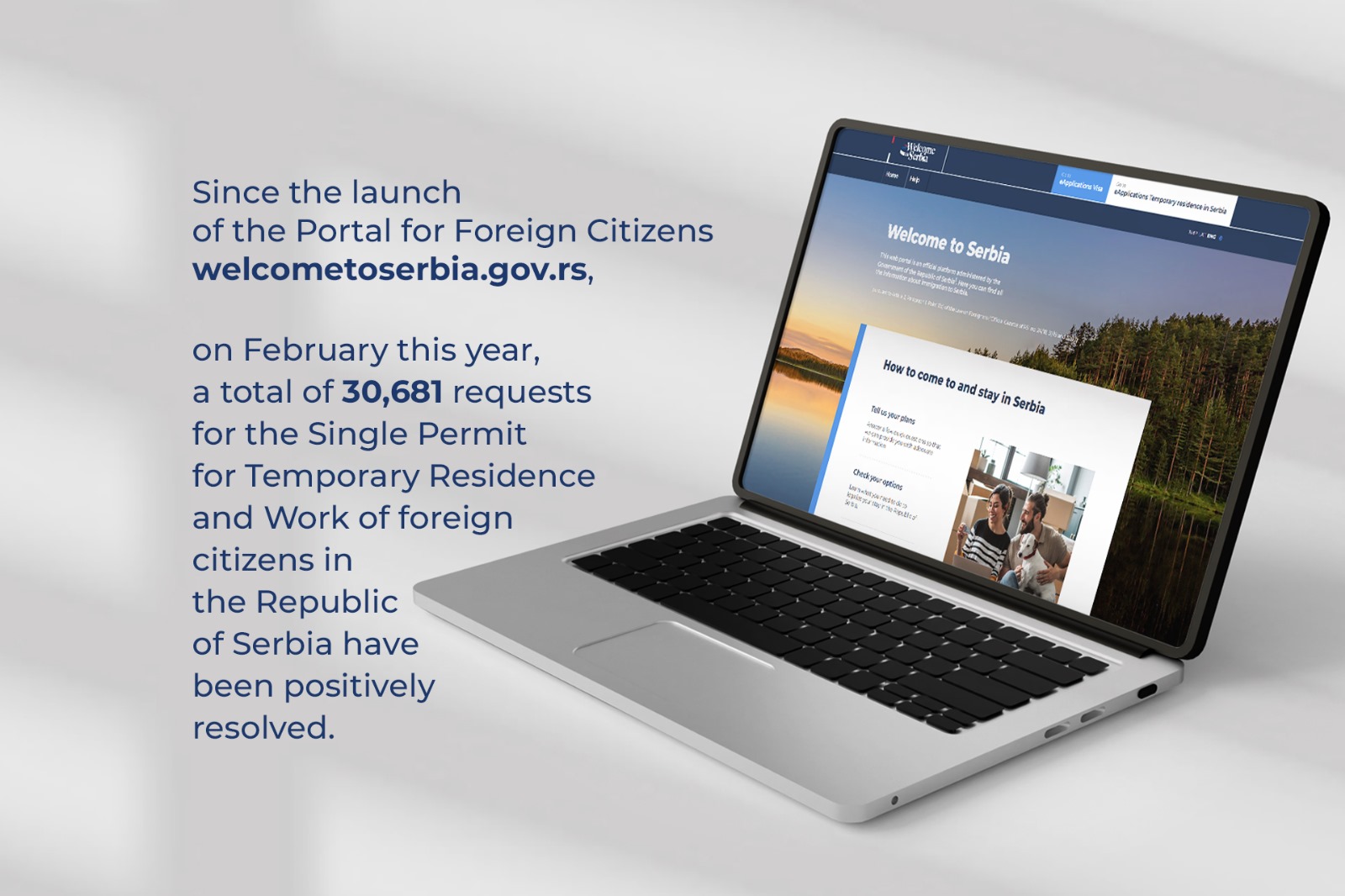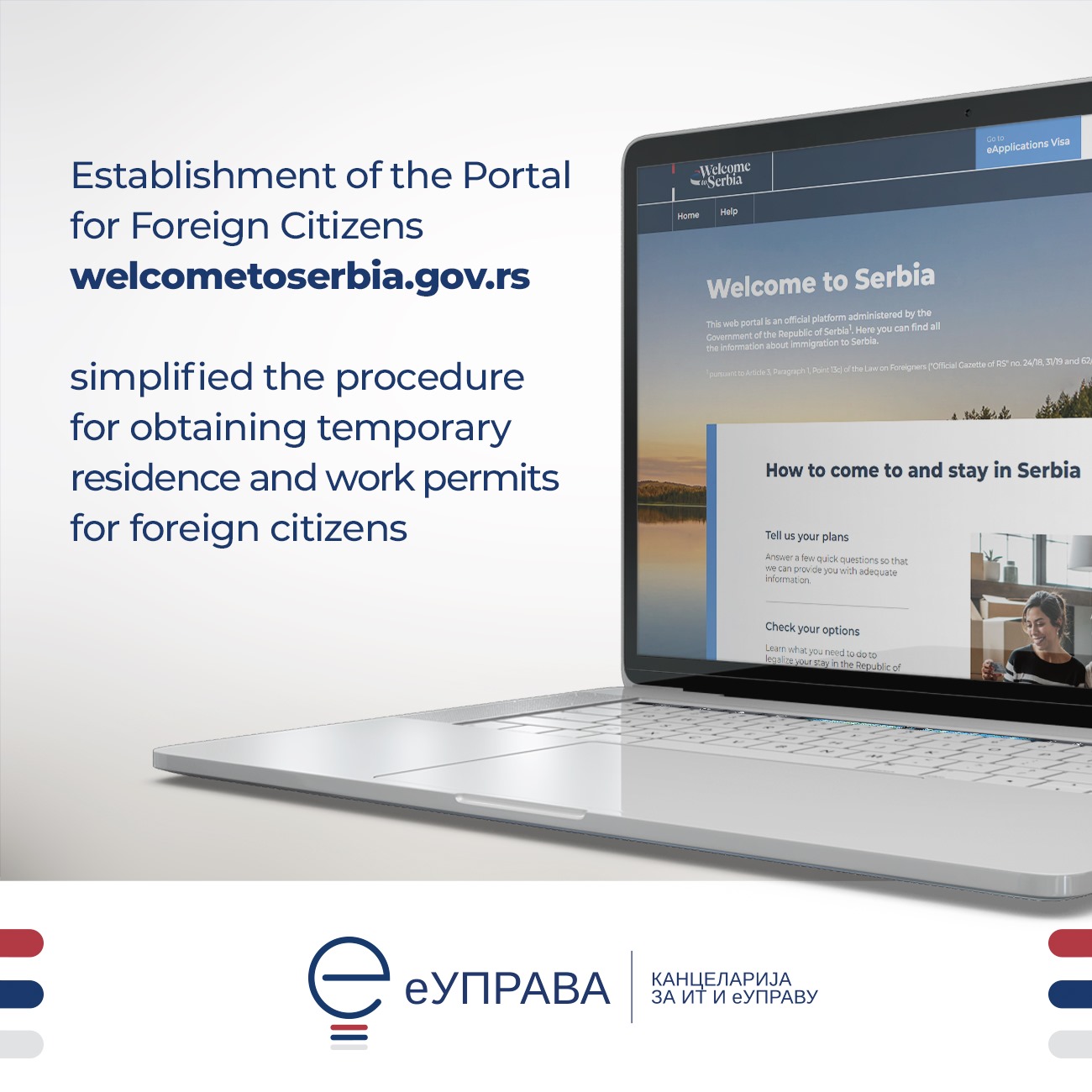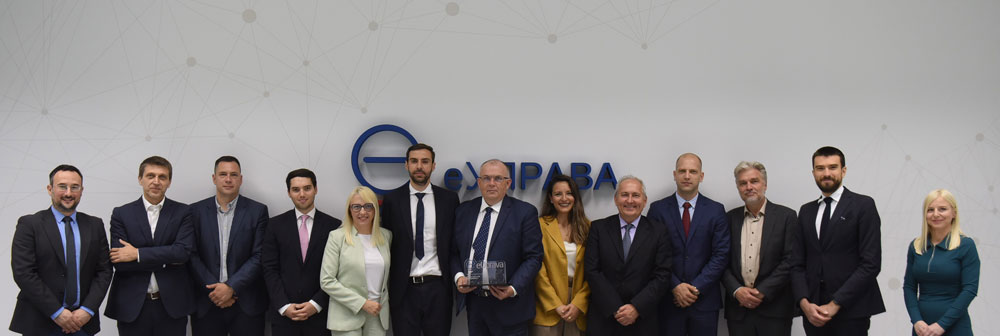Prime Minister of the Republic of Serbia, Ana Brnabić today chaired the Third Session of the Coordination Council for eGovernment, where she has, together with the Minister of State Administration and Local Self-Government, Branko Ružić, and the Director of the Office for IT and eGovernment, Mihailo Jovanović, presented the Proposal of the Program for the Development of eGovernment in the Republic of Serbia for the period 2019-2022, along with the Action Plan for its implementation.
Prime Minister Ana Brnabić chaired the Third Session of the Coordination Council for eGovernment
The overall objective of the Program Proposal is to realize efficient and user-oriented administration in a digital environment. The Government's vision is for the largest number of citizens and businesses to use eGovernment services by 2022, which should be in line with the highest quality standards and focused on customer needs. Also, the vision is that by 2022, digital literacy of citizens and civil servants for the use of eGovernment will be significantly improved. The specific objectives of the Program Proposal are: developing eGovernment infrastructure for ensuring interoperability, improvement of legal certainty in the use of eGovernment, increasing accessibility of eGovernment for citizens and businesses through the enhancement of customer services, and eGovernment open data. The session of the Coordination Council for eGovernment was attended by representatives of state administration bodies, academic community, National Alliance for Local Economic Development (NALED), as well as businesses, who discussed the proposed strategic document and priority projects for the development of eGovernment.
At the third session, it was concluded that the public administration reform and the introduction of eGovernment are some of the areas in which the greatest results were achieved. In recent months, Serbia has received commendations for good results from reputable international institutions through their independent reports.
A report by SIGMA, a joint body of the European Commission and the OECD, recently presented in Belgrade, confirmed that Serbia has advanced in 5 out of 7 indicators compared to 2017 when it comes to providing services to citizens. The SIGMA report points out that Serbia is a regional leader in this field “with great ambitions to compete with the best in the world”.
Equally important is the report of the USAID Economic Growth Program, which covered 1,000 small and medium-sized enterprises, and according to the results of which, as many as 72% of businesses operating in Serbia say that transparency and business predictability have increased in the last year. As many as 74% of respondents from small and medium-sized enterprises say that the work of public administration is more efficient today than a year ago.
The latest opinion poll conducted by the Swiss program “SWISS PRO” shows that almost every other citizen of central Serbia (about 45%) today considers that the local self-government takes care of its citizens. Nine years ago, that percentage was only 22%. This research showed that, in the opinion of citizens, the general administration in charge of issuing certificates from the main register, proofs and confirmations works best.
“All these reports indicate that progress in public administration reform has been achieved primarily through the introduction of eGovernment. Serbia not only has ambition, but also the capacity to be among the leaders in this field. eGovernment allows us to be available to citizens and businesses 24 hours, 7 days a week, 365 days a year. We have laid the foundations, now we need to progress even faster”, said the Prime Minister, Ana Brnabić.
The Director of the Office for IT and eGovernment, Mihailo Jovanović, particularly presented the priority projects for the construction of the State Data Centre in Kragujevac, the improvement of the eGovernment Unified Information and Communication Network, the establishment of a unique eClerk and eArchive services, as well as the establishment of new registers and records in electronic form necessary for the development of eGovernment services.













